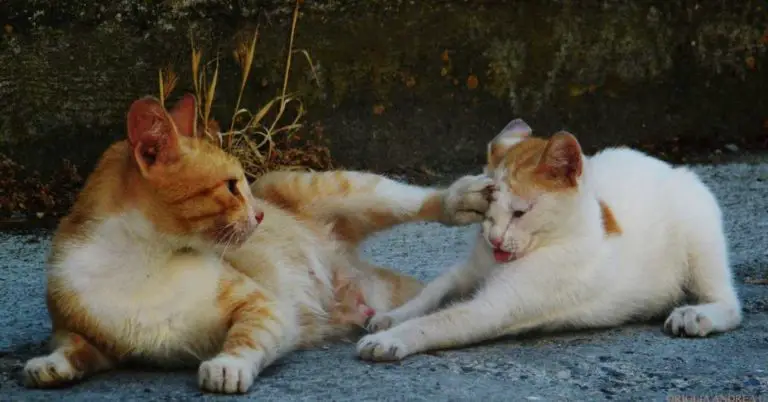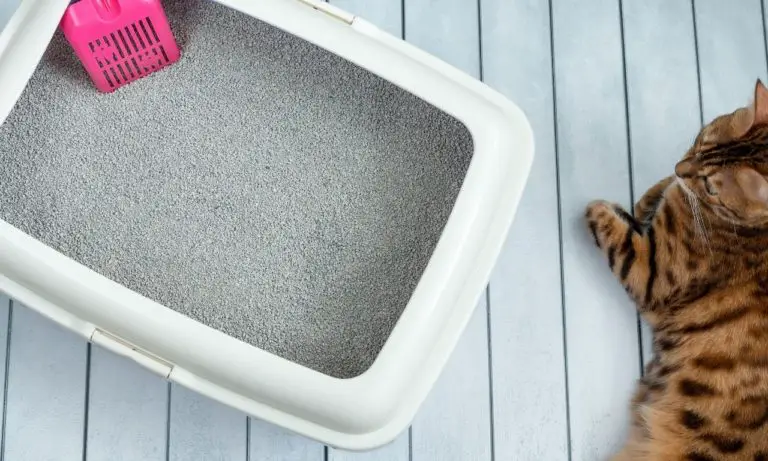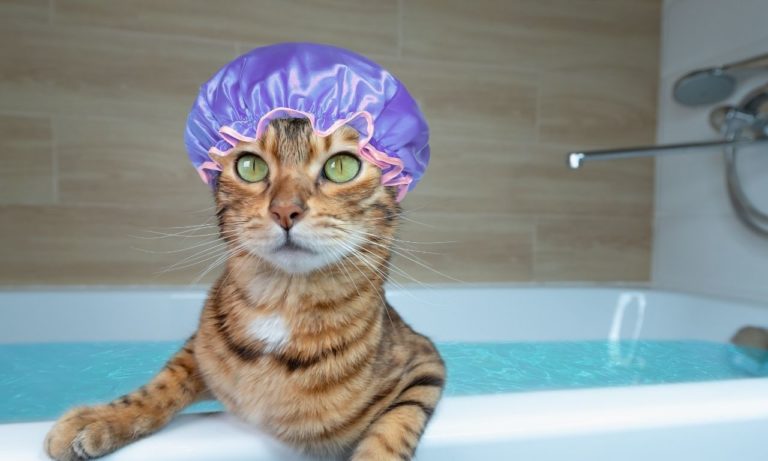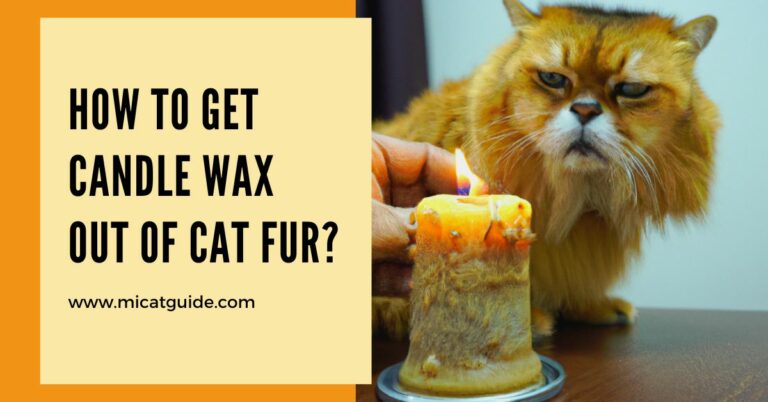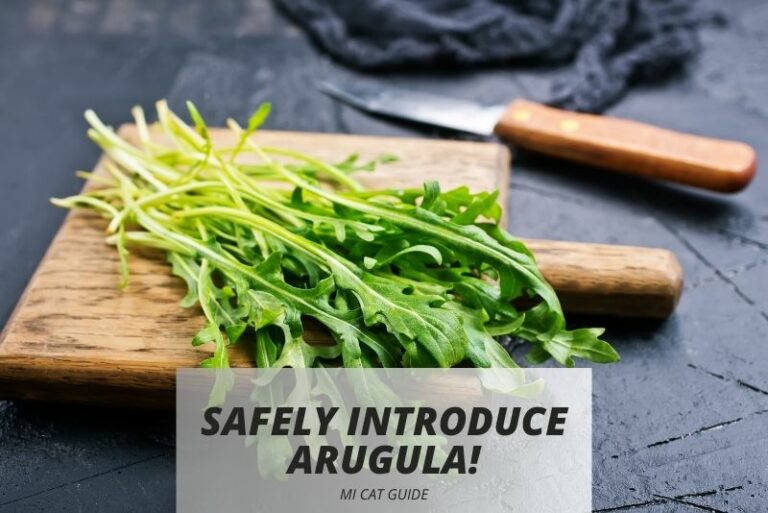Pregnant Cat Died Suddenly: Reasons & Solutions
A pregnant cat dying suddenly is a heartbreaking event for any pet owner. It can be perplexing and upsetting, as the cause of death may not always be immediately obvious.
Unfortunately, there are a number of potential factors that can lead to sudden death in cats during pregnancy, including viral diseases, bacterial infections, nutritional deficiencies and trauma.
While it can be difficult to determine a definitive cause, it is important to investigate the circumstances in order to provide better care for future litters.
So here in this blog post, I’ll discuss some of the common causes for a pregnant cat’s sudden death, as well as how to prevent it from happening again.
I’ll also give advice on how to cope with this difficult situation and ways to ensure that future pregnancies are successful. With the right knowledge and care, pet owners can help protect their precious cats before and during pregnancy.
Why Does a Pregnant Cat Die Suddenly?
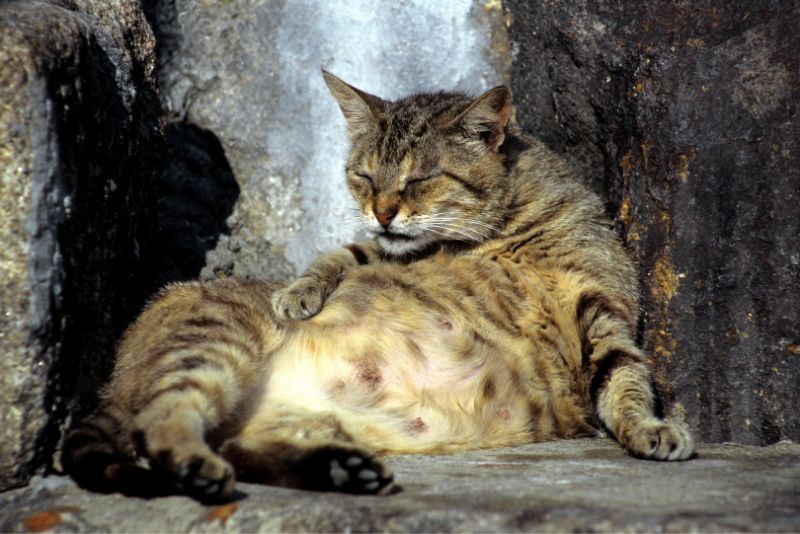
There are several factors that can lead to sudden death in cats during pregnancy. These include:
1. Your Cat Has an Infection
Bacterial and viral infections can be serious for cats, particularly when pregnant. A pregnant cat may suffer from uterine infections or other complications that can lead to sepsis, which is a life-threatening condition.
Besides, a study done by the University of California revealed that feline panleukopenia, an infectious viral disease commonly found in kittens, can lead to fetal death during late pregnancy or early parturition.
Here, it is important to note that infections can be spread quickly among cats, so it’s essential to keep your cat protected with vaccinations and regular veterinary visits.
Some bacterial infections that can cause sudden death in pregnant cats include:
2. Nutritional Deficiencies
Nutritional deficiencies can cause a variety of health problems in cats, including an increased risk of pregnancy complications. For example, a lack of sufficient vitamins and minerals can lead to anemia or other nutrient deficiencies that can cause fetal death or stillbirths.
It’s important to ensure your cat is receiving a balanced diet with all the necessary nutrients throughout its pregnancy. Talk to your vet about any dietary changes that are recommended for pregnant cats.
Here some tips you can use to make sure your cat is getting the nutrition it needs:
3. Stress and Trauma
Stress can lead to a variety of health issues in cats, including a weakened immune system. This can make cats more susceptible to infections and other complications during pregnancy.
In addition, trauma or physical injury can cause miscarriage in the late stages of pregnancy. It is important to minimize stress and keep your cat safe from physical harm.
To help protect your pregnant cat, you should:
4. Hormonal Imbalance
Hormone imbalances can be difficult to diagnose in cats, but they can be a major contributing factor to premature death in pregnant cats.
One of the most common causes is a progesterone deficiency, which can cause fetal death or premature labor. In some cases, hormone therapy may be recommended to help regulate your cat’s hormones during pregnancy.
Also Read: Dead Kitten Stuck Inside Cat: (Reasons & Solutions)
5. Genetics (Inherited Disorders)
Certain inherited disorders can cause complications during pregnancy and increase the risk of fetal death. Examples include heart defects, kidney or liver problems, and genetic blood disorders. Before breeding your cats, it is best to have them tested for any inherited diseases or conditions.
Are you unsure if your cat may be prone to genetic disorders? Here is how to determine the risk.
6. Abnormalities of the Uterus
Uterine abnormalities can cause fetal death or other complications during pregnancy. For example, a condition called pyometra can cause the uterus to become infected and lead to an increased risk of fetal death or premature labor.
If your cat is at risk of developing uterine abnormalities, it may be recommended to have an ultrasound during the pregnancy. Treatment for any uterine abnormalities will vary depending on the diagnosis.
7. Emboli or Blood Clots
I know it is a scary thought, but emboli, or blood clots, can form within the uterus during pregnancy. These clots can decrease the amount of oxygen and nutrients getting to the fetus and cause fetal death or other complications.
To reduce the risk of emboli forming in your pregnant cat, you should:
8. Sudden and Severe Rhythm Abnormalities
Sudden and severe rhythm abnormalities can occur during pregnancy in cats. These include problems with the heart rate, blood pressure, or respiration.
These types of issues can lead to fetal death or other complications for the mother cat. To reduce the risk of these types of abnormalities, you should monitor your cat’s health carefully during pregnancy.
Is It Common for Cats to Die During Pregnancy?
No, it is not common for cats to die during pregnancy. However, there are certain risk factors that can increase the chances of a cat dying due to complications or other health issues related to pregnancy.
By taking steps to reduce these risks and monitoring your cat’s health closely during pregnancy, you can help ensure a healthy delivery and prevent any potential maternal or fetal deaths.
It is important to remember that pregnant cats need special care and attention in order to stay healthy and safe.
What Happens When a Pregnant Cat Dies?
In the event that a pregnant cat dies, it is important to handle the situation with care. Depending on how far along the pregnancy was, there may be a few different steps that need to be taken.
In the following section, I will provide you with a few examples.
a. Example 1: Your Cat Died Before Giving Birth
If your pregnant cat died before giving birth, it may be necessary to a conduct a necropsy in order to determine the cause of death. It is also important to have an experienced veterinarian examine the remains and remove any fetuses that may still be inside the uterus.
b. Example 2: Your Cat Died After Giving Birth
If your cat died after giving birth, it is important to make sure that the kittens are cared for and kept warm. It may also be necessary to contact a veterinarian or animal rescue organization for assistance in finding homes for the kittens.
What Should I Do If My Cat Died While Pregnant?
If your cat has died while pregnant, it is important to take the necessary steps to ensure that all of the kittens are safe and healthy. You should also contact an experienced veterinarian or animal rescue organization for advice on caring for any remaining fetuses or kittens.
Here are some other steps that you can take if your cat has died while pregnant:
1. Give Yourself Some Time to Grieve
As a cat parenter, it can be difficult to accept the loss of your pet. It is important to give yourself time and space to process your emotions as you grieve for your pet.
From a practical standpoint, it is also a good idea to take some time off of work or other commitments if necessary.
2. Contact an Experienced Veterinarian
It is important to contact a veterinarian or animal rescue organization if you need help caring for any remaining fetuses or kittens. They can provide you with advice and resources to help ensure that the kittens receive the best possible care.
3. Consider Donating Your Cat’s Body for Research
Depending on the cause of your cat’s death, it may be possible to donate its body for research purposes. This is a great way to honor your pet and help contribute to scientific advancement.
4. Reach Out to Friends and Family for Support
It is important to reach out for support during this difficult time. Talk to friends, family members, or other pet owners about your experience and let them know if there is anything that they can do to help you.
5. Take Care of Yourself
It is important to remember that taking care of yourself is just as important as taking care of your pet. Make sure to take time for self-care and relaxation during this difficult time.
How to Cope With the Loss of a Pregnant Cat?
The death of a pregnant cat is a devastating event that can be difficult to cope with. Here are some tips for managing your grief and helping to heal during this difficult time:
1. Acknowledge Your Emotions
It is important to give yourself time to acknowledge your emotions and process the loss of your pet. Talk to someone about how you are feeling or take some time for yourself to reflect on the experience.
2. Be Patient With Yourself
Grieving the death of a pet can be a long process, so it is important to give yourself time to heal. Try not to be too hard on yourself if you do not feel ready to move on right away.
3. Find Support From Others
Find someone to talk to or join a support group for pet owners who have lost a pet. It can be helpful to share your experience with others who understand what you are going through.
4. Find Comfort in Memories
Take time to remember all of the good times you shared with your pet and the happiness they brought to your life. From my own experience, this has been the most helpful way to cope with losing a pet.
5. Consider Memorializing Your Pet
Consider creating a special memorial or tribute to your pet to honor their life and legacy. This can be a great way to remember them and celebrate all of the joy they brought to your life.
How to Find Homes for Kittens After a Cat’s Death ?
If your cat has died while pregnant, it can be difficult to find homes for all of the kittens. Here are some tips for finding a good home for the kittens:
1. Reach Out to Your Network
Reach out to your friends, family members, and other contacts who might be interested in adopting a kitten. You can also post on social media or contact pet rescue organizations to see if they have any potential adopters.
2. Utilize Online Resources
Utilizing online resources such as websites, social media, and pet adoption forums can be a great way to reach out to potential adopters. Be sure to include clear photos and detailed information about the kittens when you post them online.
Here ‘s how to utilize online resources:
3. Research Local Shelters and Rescue Organizations
Research local animal shelters and rescue organizations to see if they have any resources to help find homes for the kittens. You can also contact them directly to see if they are able to take in any of the kittens or provide advice on finding adopters.
4. Ask for Help
Don’t be afraid to ask family and friends for help in finding homes for the kittens. They may know someone who is looking to adopt a kitten, or they could help you spread the word about your search.
5. Adopt Out the Kittens Yourself
If all else fails, consider adopting out the kittens yourself. This can be a great option if you have the time and resources to commit to raising them until they are old enough to find new homes.
No matter what path you choose, it’s important to make sure that each kitten is placed in a loving home where they will have access to adequate food, shelter, and medical care.
How to Reduce the Risks of Pet Loss During Pregnancy?
If you have a pet and you are pregnant, it is important to be aware of the safety risks involved. Here are some steps you can take to reduce the risks of pet loss during pregnancy:
1. Make Sure Your Pet is Up to Date on Vaccines
Make sure your pet is up to date on all of their vaccinations, including rabies and other preventative vaccines. This will help to protect you and your unborn baby from potential disease exposure during pregnancy.
2. Keep Your Pet Away From Unsanitary Areas
It’s important to keep your pet away from areas where they may come into contact with unsanitary substances or other animals that may be carrying disease.
3. Monitor Your Pet for Changes in Behavior
Pay close attention to your pet’s behavior, and make sure to contact your veterinarian if you notice any changes such as vomiting or diarrhea. These can be signs of an underlying health issue that needs to be addressed by a professional.
4. Provide Regular Parasite Prevention Treatment
Be sure to provide regular parasite prevention treatments for your pet, as parasites can increase the risk of pet loss during pregnancy.
5. Avoid Stressful Situations With Your Pet
It’s important to avoid stressful situations with your pet during pregnancy, such as taking them on long walks or exposing them to loud noises. This can help to reduce the risk of pet loss during pregnancy.
6. Seek Professional Veterinary Care
If you are concerned about the risk of pet loss during pregnancy, it’s a good idea to seek professional veterinary care for your pet. Your vet can provide advice and treatment options to help ensure your pet’s health and wellbeing.
My Final Thoughts
In conclusion, there are several steps you can take to reduce the risk of pet loss during pregnancy. While these steps may require some extra effort, they are worth it in order to ensure the safety and health of both your pet and your unborn baby.
When it comes to taking care of pets, always remember that prevention is key! Taking proactive measures such as providing regular parasite prevention treatments, avoiding stressful situations, and seeking professional veterinary care can help to keep your pet happy and healthy during pregnancy.
Good luck!

